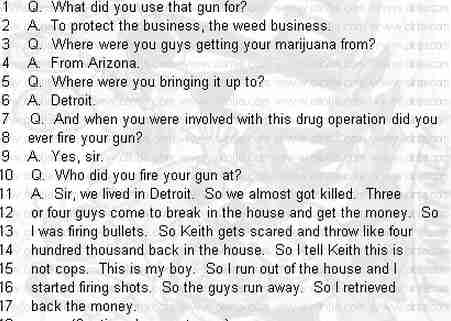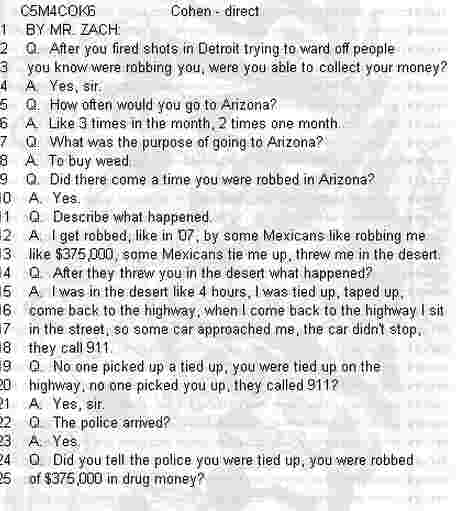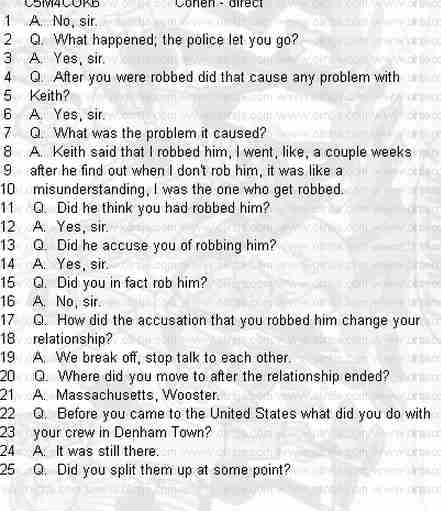WTF AFRICA- WHEY EYE SI HAWT DID LEAP

A woman who sought a neighbour’s shoulder to cry on when her husband played away got more than she bargained for in Bulawayo.
She popped next door and it appeared there was no-one in the house until she peeped into the bedroom. Casuality Zivhane of No. 7 Stamptale Road Burnside, Bulawayo could see a man relaxing on a bed, covered loosely by a blanket.
The man’s manhood attracted her attention. He was well endowed, just like her husband. A closer inspection shocked her as it was her husband’s willy.
Casualty then flew into a rage and yanked her husband Mbonisi Mdimba’s manhood. The man screamed in pain. The girlfriend, Sideliso Ndlomo (43) then stirred to action.
The husband teamed up with his mistress and her friend Triphine Sibanda (33) and brutally assaulted Caualty with feet, open ands and cooking sticks. She went and reported the matter to Hillside Police Station leading to the arrest of the team.
The trio were brought before Bulawayo magistrate Mr Shepherd Mjanja charged with physical abuse. Mdimba and his small house were sentenced to three months imprisonment with an alternative option of $100 fine each or to complete 105 hours of community service.
WAS PAUL’S THORN IN THE FLESH?-GOODMORNING
What was Paul’s Thorn in the Flesh?
FAQ: What was Paul’s “thorn in the flesh”? I have heard Christians say all kinds of things about it, like Paul had an eye problem, or another illness, or even sinful lusts. Furthermore, many say that God gave him this affliction to test him or to keep him humble. What is the truth about it?
Paul’s “thorn in the flesh” has been just that for many Christian theologians and ministers through the years. It is unfortunate that so many erroneous theories about it have been postulated by sincere believers. When we handle the Word of God, we must be diligent not to inject our own opinions as to its meaning. As we will see, applying sound principles of biblical interpretation will yield a clear, concise, and correct answer to this question, one that will help shed great light on some key biblical truths.
Let us first take a look at the verse in which this phrase is found, and the subsequent verses that help frame its context.
2 Corinthians 12:7-10 (NKJ)
(7) And lest I should be exalted above measure by the abundance of the revelations, a thorn in the flesh was given to me, a messenger of Satan to buffet me, lest I be exalted above measure.
(8) Concerning this thing I pleaded with the Lord three times that it might depart from me.
(9) And He said to me, “My grace is sufficient for you, for My strength is made perfect in weakness.” Therefore most gladly I will rather boast in my infirmities, that the power of Christ may rest upon me.
(10) Therefore I take pleasure in infirmities, in reproaches, in needs, in persecutions, in distresses, for Christ’s sake. For when I am weak, then I am strong.
What can we see in those verses? First, it is clear that the “thorn in the flesh” was not a literal thorn, but a figurative way of describing whatever it actually was. Second, we see that it was “a messenger of Satan,” which means that it was certainly not God who “pricked” Paul with it. Had it come from God, why would Paul have asked the Lord Jesus to take this “thorn” out of his life?
In response, the Lord told Paul that he would give him the grace and strength to deal with this problem. So whatever it was, the Lord could not just “delete” it from Paul’s life. That would indicate that the “thorn” was not a physical ailment, because the Lord Jesus did, and still does, heal “all manner of sicknesses.” Paul then said that for Christ’s sake he would “boast” in infirmities, reproaches, needs, persecutions, and distresses, counting on the Lord’s strength to make up for his weakness.
In his excellent book, Christ The Healer, [1] written in the early 1900s, F. F. Bosworth does a superb job of showing what Paul’s “thorn” really was. He points out that the word “messenger” (v. 7) is the Greek word angelos, which is used 188 times, and is translated “angel” 181 times and “messenger” seven times. In each case, the angelos was a being, either spirit or human (p. 194).
Bosworth notes that the word “buffet” (v. 7) means to strike “blow after blow.” He cites Rotherham’s translation: “…that he might be buffeting me,” and notes that Weymouth’s translation reads: “Satan’s angel dealing blow after blow.” He then rightly concludes that if Paul’s “thorn” had been sickness, it would have to have been many sicknesses, or the same sickness over and over. And he points out that Rotherham uses the personal pronoun “he” rather than “it” (v. 8) to agree with the word “messenger.” And he quotes Weymouth: “As for this, three times I besought the Lord to rid me of him.” Again we see reference to a being or person rather than a disease (p. 194).
Before we look at other biblical uses of the key word, “thorn,” let us get a “running start” toward 2 Corinthians 12:7, beginning in Chapter 10. In verse 2, Paul speaks of “some [people]” who he expected to take to task about their opposition to him. A study of Chapters 10-13 shows that there were many “false apostles” in Corinth who spoke against Paul and boasted of their own spirituality as they tried to win the allegiance (and the financial support) of the Corinthian Church.
In fact, the word “boast,” which we saw above in 2 Corinthians 12:9, helps us follow the contextual trail through these chapters. Those whom Paul twice sarcastically called “super-apostles” were telling the Corinthian believers Paul had ministered to that he was leading them astray, and boasting that they were the ones with true knowledge and spiritual insight.
Paul thus spends most of Chapters 10-13 making his case as to how the Lord had worked in him and given him the authority to build up the Corinthian Church. He calls this “boasting,” and contrasts it to the boasting of his opponents.
Consider the following verses, and note the references to people who opposed Paul:
2 Corinthians 10:11 and 12
(11) Such people should realize that what we are in our letters when we are absent, we will be in our actions when we are present.
(12) We do not dare to classify or compare ourselves with some who commend themselves. When they measure themselves by themselves and compare themselves with themselves, they are not wise.
2 Corinthians 11:4 and 5
(4) For if someone comes to you and preaches a Jesus other than the Jesus we preached, or if you receive a different spirit from the one you received, or a different gospel from the one you accepted, you put up with it easily enough.
(5) But I do not think I am in the least inferior to those “super-apostles.”
2 Corinthians 11:12-15
(12) And I will keep on doing what I am doing in order to cut the ground from under those who want an opportunity to be considered equal with us in the things they boast about.
(13) For such men are false apostles, deceitful workmen, masquerading as apostles of Christ.
(14) And no wonder, for Satan himself masquerades as an angel of light.
(15) It is not surprising, then, if his servants masquerade as servants of righteousness. Their end will be what their actions deserve.
Do you think that those people opposing Paul could be called “messengers of Satan”? It sure looks that way, doesn’t it? Let us point out that God never promises that He will take away all of the “buffeting” that comes from satanically-inspired human opposition. Rather, as the Lord Jesus told Paul, he (and God) will stand with us and help us bear up to such persecution, which, in fact, He guarantees will come our way (2 Tim. 3:12).
In that vein, we should point out that in 12:7 where the NKJ reads, “lest I should be exalted above measure,” the NIV curiously reads, “To keep me from becoming conceited.…” Huh? Given the definition of that word, wouldn’t Satan be the one who would want Paul to become “conceited”? Yes, so why would he send a “messenger” to stop that from happening?
Wasn’t it God who had given Paul the “abundance of the revelations”? Yes, and why did He do so? To lift Paul up amidst the spiritual battle raging around him, to encourage him to stay in the fight and not be discouraged, to “exalt” him big time. Chapter 12 says that God even showed Paul some of the glories of Paradise. Wow!
As usual, we see here the battle of good vs. evil, that is, God vs. the Devil. God was trying to bless and exalt Paul, and Satan was trying to destroy him via the “thorn in the flesh.” 1 Thessalonians 2:18 comes to mind: “Therefore we wanted to come to you—even I, Paul, time and again—but Satan hindered us.” It is sad that some Christians teach that God uses Satan to further His own ends, because the Word of God says just the opposite—God does not do evil so that good may come (Rom. 3:8). [For more on this critical subject, see our book, Don’t Blame God! and our topics Don’t Blame God 1 & 2.]
OK, so what is the “thorn”? When we are searching for the meaning of a biblical word or phrase, one principle that is key to finding the answer is to see how the word or phrase is used elsewhere in the Bible. God, the Author of both language and Scripture, has a purpose for everything He says, when He says it, where He says it, how He says it, and to whom He says it. As truth seekers, it is our duty to adhere to the linguistic principles that the Author of language set in His Word. We dare not engage in groundless speculation about Paul’s “thorn” or anything else.
The word “thorn” appears twice, and “thorns” 43 times. Not all are pertinent to our study, but here are those that are (all scriptures NKJ):
Numbers 33:55
‘But if you do not drive out the inhabitants of the land from before you, then it shall be that those whom you let remain shall be irritants in your eyes and thorns in your sides, and they shall harass you in the land where you dwell [Judges 2:3—same usage].
Joshua 23:13
“Know for certain that the LORD your God will no longer drive out these nations from before you. But they shall be snares and traps to you, and scourges on your sides and thorns in your eyes, until you perish from this good land which the LORD your God has given you.
Ezekiel 2:6
And thou, son of man, be not afraid of them, neither be afraid of their words, though briers and thorns be with thee, and thou dost dwell among scorpions: be not afraid of their words, nor be dismayed at their looks, though they be a rebellious house.
Ezekiel 28:24
“And there shall no longer be a pricking brier or a painful thorn for the house of Israel from among all who are around them, who despise them. Then they shall know that I am the Lord GOD.”
After reading all the above verses, it is clear that God uses “thorn” to refer to people. Paul’s “thorn in the flesh” was the many human “messengers” that Satan sent against him to stop him from making known the Gospel of Christ. There is no verse of Scripture giving any indication that the “thorn” was anything other than people, and certainly no verse saying it was a sickness. Let’s allow Paul to describe that opposition in his own words:
2 Corinthians 11:24-26
(24) From the Jews five times I received forty stripes minus one.
(25) Three times I was beaten with rods; once I was stoned; three times I was shipwrecked; a night and a day I have been in the deep;
(26) in journeys often, in perils of waters, in perils of robbers, in perils of my own countrymen, in perils of the Gentiles, in perils in the city, in perils in the wilderness, in perils in the sea, in perils among false brethren.
In the battle between God and Satan, each employs human beings to do their bidding. The difference is that the true God acts only in conjunction with our freedom of will, that is, He must wait on us to obey Him before He can work with us. On the other hand, Satan, the false “god of this age” (2 Cor. 4:4) demonizes those who open their minds to him and controls them to do the kinds of things that people did to Paul. At the same time, he works to arrange the circumstances in our lives so as to tempt us to respond according to our “flesh” (sin nature) rather than leaning on the spirit of God within us and allowing the Lord’s strength to be manifest in our lives.
And therein lies the great truth that Paul sets forth in the three verses following his reference to the “thorn,” which we will repeat here:
2 Corinthians 12:8-10
(8) Concerning this thing I pleaded with the Lord three times that it might depart from me.
(9) And He said to me, “My grace is sufficient for you, for My strength is made perfect in weakness.” Therefore most gladly I will rather boast in my infirmities, that the power of Christ may rest upon me.
(10) Therefore I take pleasure in infirmities, in reproaches, in needs, in persecutions, in distresses, for Christ’s sake. For when I am weak, then I am strong.
As frail human beings, living in an evil world and beset with the sin nature we inherited from Adam, it is imperative that we face both the “sin that dwells in us” and the spiritual opposition around us, recognize our complete inadequacy to deal with these in our own strength, and draw upon the power of God. It is recognizing and embracing our weakness that drives us to our Savior, who will then sustain and energize us. It is in and of Christ that we boast. Truly, his grace is sufficient for us, just as it was for Paul. Amen.
READ AND SAY WHAT YOU THINK
Login with Facebook to see what your friends are readingEnable Social Readingi
Colin GrantColin Grant is a historian and BBC radio producer
GET UPDATES FROM COLIN GRANT
Like
10
Jamaica 50: Dudus vs Usain Bolt

Lightning flashed and thunder crackled to the booming Reggae baseline as Bob Marley with dreadlocks flailing cried out again and again: “We’re going to unite! We gotta unite!” It was 1978; Jamaica was in the throes of near civil war. To underscore his message, Marley summoned the prime minister, Michael Manley, to the stage along with his nemesis, the leader of the opposition, Edward Seaga. Marley took the hand of each man and with his own raised in the air they formed a holy and unlikely trinity. This was a miracle, a psychic and symbolic moment of hope, of peace and love; an opportunity for the warring political parties to put down the gun and pick up the olive branch offered by the king of Reggae and voice of the unaligned Rastafarians.
The truce engineered by the ghettos’ political enforcers, the gunmen who were architects of the One Love Peace Concert, was short-lived. Three decades later it led to Christopher “Dudus” Coke, an enforcer beyond the control of his political paymasters, whose attempts to rein him in resulted in mayhem, until his capture at a police checkpoint, dressed as a woman in an ill-fitting pink wig.
Up until then, Dudus, made rich through drug dealing and gun racketeering, could confidently rely on his local supporters in Kingston’s Tivoli Gardens ghetto – old ladies who sported T-shirts bearing the inscription “I will die for Dudus” – not to give him up: their disapproval of the violence perpetrated by his posse was offset by the credit lines on offer from him; the small hand-outs when they needed money to buy school uniforms or to pay the utility bills long in arrears.
Coke is something of a throwback to the 1970s. Horace Levy, a sociologist at the University of the West Indies , says: “What has changed is that the level of violence has escalated.” Jamaica with a population of fewer than three million has one of the highest murder rates in the world. “The dons in the 1970s were often in their late 40s,” says Levy. “They might even have had a Rasta or Socialist sensibility. They would keep a lid on things. Claudius Massop, a Tivoli Gardens enforcer, was an architect of the One Love Peace Concert.”
Since the 70s the number of dons has multiplied just as their fiefdoms have shrunk. The new teenaged dons show allegiance to no one and pay scant attention to the conscious lyrics of old school Reggae.
Jamaicans describe that someone is “under manners” when he has been censured for a transgression and penalised. As he starts his prison sentence in the USA , Christopher Coke has clearly been placed under very heavy manners. During his manhunt, heavy manners were also imposed on his stronghold at Tivoli Gardens, and order was restored.
But of equal concern to Jamaicans is what comes after the judicial process. In recent years this small island has had less to fear from the extradition of suspects than from those violent criminals convicted in American or British courts who, after their time is served, have been deported back home to begin a new reign of terror.
There is a profound need for truth and reconciliation. More than seventy people perished in the hunt for Dudus in tactics which some claim owe more to counter-insurgency than everyday policing. Relations between the Jamaican Constabulary Force and sizeable portions of the population they police were already fractured; the distrust has deepened. Trust needs to be restored. Jamaica would benefit from a return of Bob Marley and the spirit of One Love; and from the unity offered by Usain Bolt.
Before we turn comfortably in our beds with the thought that this is a local, Jamaican problem, let us remind ourselves that for years Coke was in the import/export business – not just of guns and drugs but also of personnel. In the last decade a criminal diaspora has washed up on shores of the UK , USA and Canada . Behind the hysterical headlines in British newspapers in the late 1990s about the rise of vicious Jamaican “Yardies”, was the real anxiety that they had ushered in a new culture and a new kind of nihilistic criminal. British police commanders have been loath to report the change: whereas a few years’ back feckless youthful felons would have run away from pursuing policemen; now they’re just as likely to stand and turn their guns on them. What happens in Jamaica doesn’t stay there.
****RULES**** 1. Debates and rebuttals are allowed but disrespectful curse-outs will prompt immediate BAN 2. Children are never to be discussed in a negative way 3. Personal information eg. workplace, status, home address are never to be posted in comments. 4. All are welcome but please exercise discretion when posting your comments , do not say anything about someone you wouldnt like to be said about you. 5. Do not deliberately LIE on someone here or send in any information based on your own personal vendetta. 6. If your picture was taken from a prio site eg. fimiyaad etc and posted on JMG, you cannot request its removal. 7. If you dont like this forum, please do not whine and wear us out, do yourself the favor of closing the screen- Thanks! . To send in a story send your email to :- [email protected]








Recent Comments